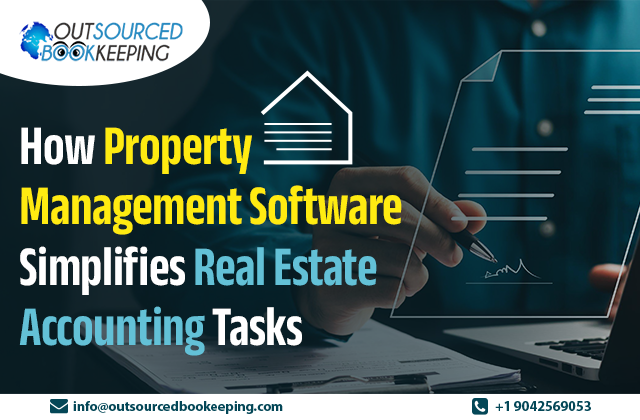Real estate accounting is not limited to balancing rent and expenses. It involves the monitoring of various income sources, paying the vendors, updating the lease information, tax reports, and the financial health of the properties. When it is done manually, mistakes are bound to occur. Time is lost. Insights are missed. Property management software changes that. It puts real estate accounting on autopilot without losing control.

The Real Challenge of Real Estate Accounting
Every property is different. Some have long-term tenants. Others have short stays. Payment cycles vary. Expenses are unpredictable. Documentation piles up. If your real estate accounting still relies on spreadsheets or scattered tools, it creates confusion.
Reconciliation becomes slow. Financial reports lose accuracy. This is where real estate accounting software steps in. It combines automation with real-time tracking. So, instead of managing paperwork, you manage results.
What Property Management Software Actually Does
At the core, property management software is designed to centralise tasks. It handles rent invoicing, expense tracking, lease updates, and tenant communication. However, when used in conjunction with built-in real estate accounting features, it becomes a very strong financial tool.
It allows you to generate and issue rent receipts, update payment status, generate income statements and monitor overdue accounts. No switching between platforms. No delays in reconciling accounts.
Real-Time Tracking and Financial Accuracy
Property accounting software gives you live updates on rent collections, pending payments, and operating costs. It automates reminders and highlights inconsistencies. In case of a missed payment or an overdue bill, the system also shares notifications. There is no need to wait until the end of the month to know where something went wrong.
This is particularly useful to American property owners who have more than one rental unit or commercial space. The more the properties, the harder it is to manually track. Automation solves that.
Tax Reporting Made Easier
One of the most time-consuming parts of real estate accounting is tax preparation. With property management software, all income and expense entries are already recorded. The software generates tax-ready reports, profit and loss statements, and other compliance documents. Thus, the aspect of filing returns becomes significantly easier, allowing users to save time, effort, and money in the long run. Everything is where it should be. Clean. Organised. Updated.
Integration with Real Estate Accounting Services
If you already work with an external firm offering real estate accounting services, most modern software platforms integrate easily. Your CA or accounting team can be given access. Accounting professionals can effectively download reports, authenticate transactions, or upload statements [without needing to ask for every file]. This saves time on both ends. It reduces miscommunication. And it ensures that your financials are ready for audits, reviews, or investor meetings.
Multi-Property Handling in One View
Managing accounts for one flat is easy. Managing for a whole building or a mix of residential and commercial spaces is not. Property accounting software simplifies this. You can track each unit separately but view totals across all properties. So, whether it is rental income, security deposit tracking, maintenance cost allocation, or monthly yield calculations, the software presents it all. One click. One window. All numbers.
Helps You Make Faster Business Decisions
Clean data leads to better decisions. Real estate accounting software shows you what is profitable and what is not. If a unit has been vacant for too long. If a property is consuming too many resources. If rents need revision. The data is clear. This helps you act quickly. You do not have to guess or wait. The system tells you where you stand.
Reduced Errors and Better Compliance
Manual entries bring mistakes. Missed decimals. Duplicate entries. Wrong tax rates. Real estate accounting software minimises the element of human error. It standardises entries and checks figures. Taxes are calculated automatically. Ledger entries are consistent.
This is crucial in the United States of America, where tax norms and record-keeping standards are strict. A minor mistake can lead to penalties. With property management software, you reduce the risk.
Ideal for Small Landlords and Large Firms
Whether you own a single shop in Pune or run a property firm in Delhi managing 50 units, the benefits are the same. You save time. You cut down paperwork. You reduce stress. And your financial reporting improves. For growing businesses, real estate accounting services can be integrated later. For smaller setups, the built-in property accounting tools are usually enough to stay on track.
Conclusion: A Smarter Way to Handle Real Estate Accounting
Property management software is no longer optional. If your business depends on rental income, asset tracking and lease cycles, this software gives you control. It simplifies real estate accounting without needing a finance degree.
From rent collection to compliance, from vendor payments to profit tracking, property accounting software takes the guesswork out of your numbers. It is fast. It is secure. It is scalable. And it lets you focus on what matters, i.e. growing your real estate business, not getting stuck in spreadsheets. In a competitive American real estate market, clean accounting is your edge. Make it count.



